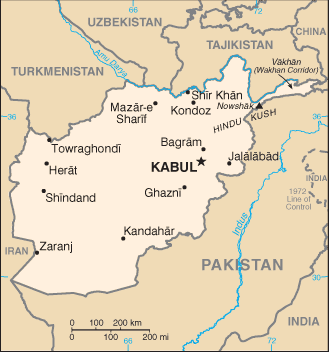The Pentagon has reported “initial findings” in its internal investigation of this month’s attack on a Doctors Without Borders (MSF) hospital in Kunduz, Afghanistan, a strike which killed 22 civilians and has fueled calls for an independent investigation into potential war crimes.
 The Pentagon’s comments, reported to CNN, were largely in keeping with what MSF had already reported, affirming that the hospital was known and documented by the Pentagon, that Doctors Without Borders “did everything right” in informing the US of the location of the facility, and that MSF, as they reported the day of the incident, contacted the Pentagon immediately upon the first strike on the facility.
The Pentagon’s comments, reported to CNN, were largely in keeping with what MSF had already reported, affirming that the hospital was known and documented by the Pentagon, that Doctors Without Borders “did everything right” in informing the US of the location of the facility, and that MSF, as they reported the day of the incident, contacted the Pentagon immediately upon the first strike on the facility.
That’s where things get murky though. The Pentagon concedes the hospital was “restricted” – not to be attacked under any circumstances, and that they were informed early in the attack that they were hitting a hospital. Despite this, the attacks continued for a solid hour, and Pentagon officials say the call “was quickly put into our system. Beyond that I can’t say where it went.”
This only adds to questions about the attack, as US ground troops were reported previously to have been conducting surveillance of the hospital on suspicion a Pakistani spy was within. Some reports even cited officials claiming the attack was legitimate because it may have killed him. None of MSF’s staff was Pakistani in origin, and they had no indication any of the patients were either.
Today’s comments have US officials trying to disavow that narrative at any rate, saying it is “preposterous” to think that the US would “knowingly” attack a protected facility even if it knew there was a target within. Yet the US did attack the facility, and confirms it was protected, and so far there hasn’t been even a mediocre excuse for it.
Instead, US officials seem to be determined to keep the incident as shrouded in mystery as possible, leaking only bare minimum narratives while the White House openly rejects the idea of allowing an international investigation, and dismisses the suggestion that attacking a hospital full of civilians is even a potential war crime.
As for MSF, they’re still pushing for the probe, though after last week when a US tank smashed its way into the now closed hospital, causing major damage and destroying potential evidence, the prospect that there will be anything left, even if the US gets around to allowing a legitimate investigation, seems remote.


